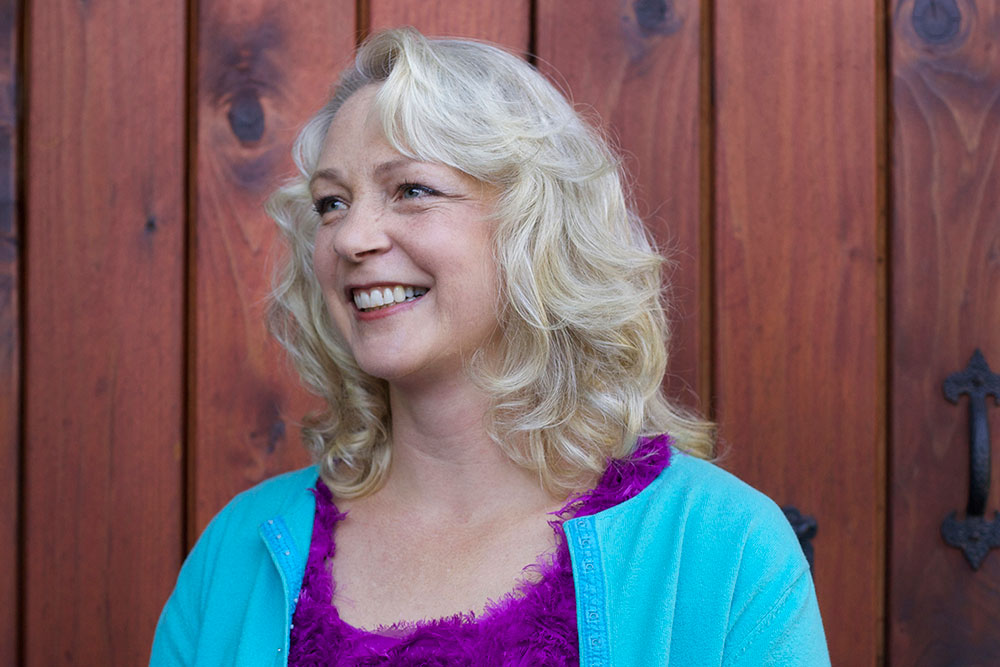Foundations, Folk Tales, and Moving Forward: A Conversation with Gina Ochsner
September 15, 2017
OBU senior Creative Writing major Ruthee Ivers spoke with novelist Gina Ochsner prior to Ochsner’s trip to Bison Hill for the 2017 Visiting Writer Seminars. Their conversation touched on Ochsner’s first forays into fiction writing, her fascination with European folk tales, and her new novel The Hidden Letters of Velta B.
Ruthee Ivers: When did you decide to start writing?
Gina Ochsner: I think I was a sophomore in university, and I was taking some literature and education classes. As part of the requirement for [education], we had to do a creative writing class, which I was kind of looking forward to, but I was kind of afraid of, too. So, I signed up with a great deal of sheer trepidation, but, boy, it was so much fun! Everything I did was pretty awful, but it was so much fun and it introduced me to a different kind of writing than we were encountering in, say, British Lit. It was like, wow, there is such a big world out there in terms of what you can do in a single genre. I became fascinated with magical realism, speculative fiction and metafiction. So, it kind of early on went in that direction.
RI: Who inspired you?
GO: The instructor who taught the Creative Writing class, Dr. Ed Higgens at George Fox, was one source of inspiration. Another came from the world of literature itself. I found a lot of inspiration from a Serbian writer, Milorad Pavić, and also Gabriel García Márquez, writing out of the South American magic-realism camp. And I think [I was inspired] as a kid having grown up kind of lucky to have storytellers in our family. Hearing the oral tradition, how stories can be a beautiful, well-crafted thing and also having grown up around folk tales. All of these things kind of came together to form that core that kept me going.
RI: What kind of folk tales did you grow up with?
GO: We grew up with the Grimm’s Tales and Hans Christian Andersen. Some of the northern latitudes, Bavaria, those kinds of things. Then, when I got to college and realized that there are so many kinds of folk tales out there, I got interested in Slavic tales. All of that kind of came together with the last novel too. I started researching Latvian mythology, folk tales and poetry.
RI: I’ve noticed a large eel theme in your novel, is that something you encountered a lot in Latvian folklore?
GO: [Laughs] It does form a robust segment of cuisine. I kind of made more of it than is really there. But I was interested in the whole culture of mushroom hunting which is a big deal there, and as I started researching that, I noticed eels started to pop up a lot in the stories people tell and thought, “Hmm, I wonder if I can make more of that.”
RI: You said that it took multiple trips and eleven years to write this novel. What else would you say was the most challenging part about writing this novel and how did you overcome it?
GO: I think structurally there were some challenges from the [beginning] and so I was tinkering around for several years trying to find the right architecture in which to tell a multi-stranded story that goes across two different time periods. I was told by the editor, “Hey, you know you’ve got some architectural flaws here; could you, basically, pull this whole thing down and rebuild it?” And I did that three times before I got what we thought was a workable architecture. So, I think that’s what took me so long. I basically rewrote it three times.
RI: What advice would you give to young writers?
GO: I would say, just don’t give up. Expect that there will be setbacks along the way, that is just kind of part and parcel—what you sign up for when you say that you are going to be a creative writer. Know that, part of moving forward are those moments when you feel like you have moved backwards and you are totally stagnant. Sometimes that means you are just on the verge of a really good discovery or mastering a really difficult craft element. Know that, that is part of the process and just keep at it. Keep it up.
RI: Is there a particular book that you love?
GO: Oh, yes, lots of them! One of them is the Dictionary of the Khazars by Pavić and I love Marilynne Robinson’s Gilead. I took a good, hard look at her architecture to see if I could learn something by studying her. Which is what I did.
RI: Are you working on anything now?
GO: Well, I’m starting a new novel and it’s going to be another multi-stranded set of stories that intertwine. I noticed there are not a lot of stories about the Roma, the Gypsies, in which the Roma are protagonists and they are portrayed in a positive way, as talented, resourceful people. They are either kind of villains, palm readers or musicians, but they occupy sort of different parts in different people’s stories and I wanted to tell stories in which they are the star of the show. I wanted to set it in different time periods in Serbia. [Laughs] I will try to be quicker with this one!
RI: Is there anything else that you would like people to know?
GO: I would just encourage anyone who is interested in writing to just pursue it and you won’t regret it!
